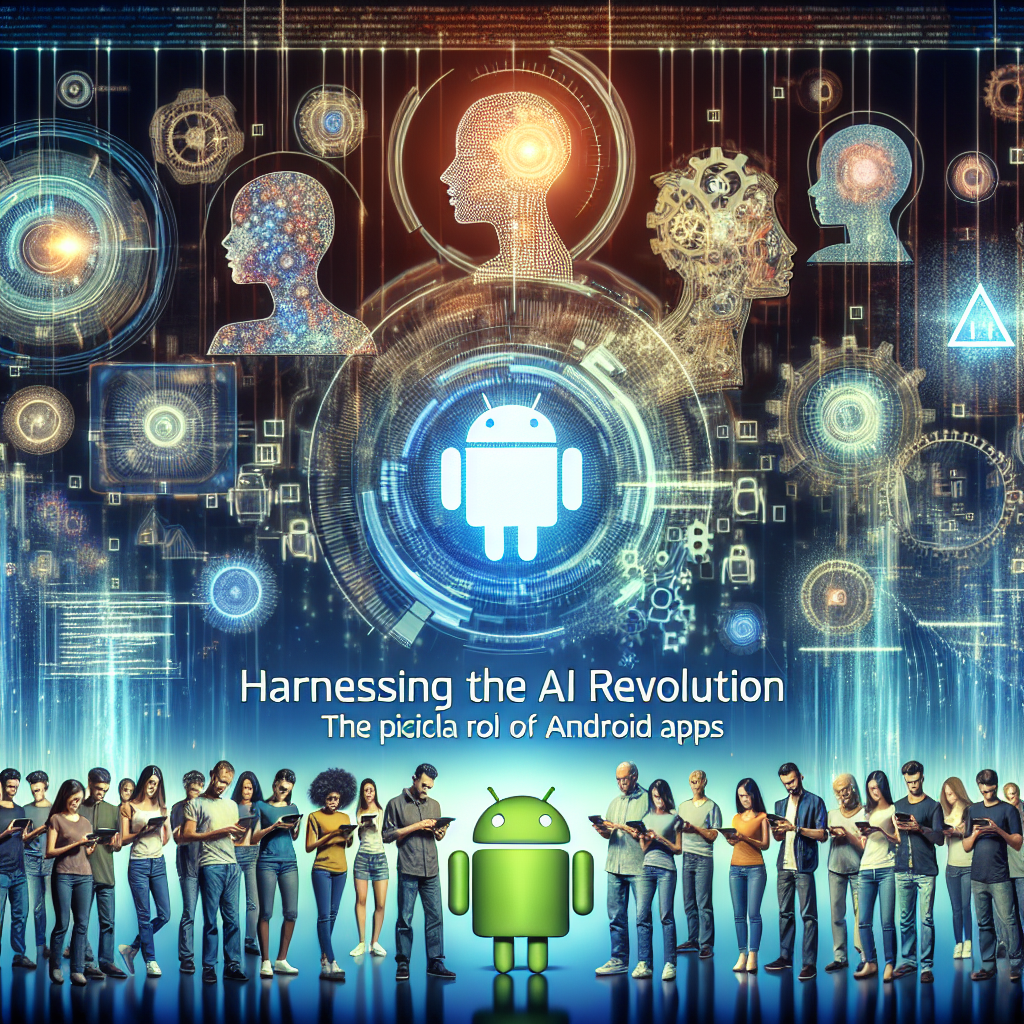In recent years, artificial intelligence (AI) has transformed from a futuristic idea to a vital component of our everyday lives. From virtual assistants to tailored recommendations, AI technologies are revolutionizing industries and altering how consumers interact with digital platforms. Among the various platforms reaping the benefits of this technological wave, Android apps are leading the way, fostering innovation and enriching user experiences. This article delves into how Android apps are spearheading the AI boom and what implications this holds for users and developers alike.
The Rise of AI in Mobile Technology
Mobile applications have become the primary means through which users engage with technology. With more than 2.5 billion active Android devices globally, the Android ecosystem presents immense potential for AI integration. From machine learning algorithms that optimize app performance to natural language processing that enables conversational interfaces, the opportunities are boundless.
Key Areas of AI Integration in Android Apps
-
Personalization:
AI algorithms evaluate user behavior to deliver personalized experiences. For example, social media platforms like Instagram and Twitter utilize AI to curate content that aligns with users’ interests. Streaming services like Netflix rely on recommendation systems to suggest movies and shows based on past viewing behaviors, ensuring users receive content tailored to their tastes.
-
Enhanced User Interfaces:
Voice-activated assistants such as Google Assistant are transforming how users interact with their devices. These assistants leverage natural language processing to comprehend and respond to user queries effectively, making technology more user-friendly. Additionally, features like Android’s Smart Reply suggest quick responses in messaging apps, improving communication efficiency.
-
Predictive Analytics:
Numerous Android apps employ predictive analytics to enhance functionality. For instance, fitness and health applications track user activity patterns to offer customized workout plans or dietary recommendations. By anticipating user needs, these apps can provide tailored guidance, assisting users in achieving their objectives more effectively.
-
Augmented Reality (AR):
AI is essential in AR applications, which integrate digital information with the real world. Apps such as Google Lens enable users to identify objects, translate text, and even shop simply by pointing their camera at a product. This fusion of AI and AR elevates user engagement, offering immersive experiences that were previously unimaginable.
-
Security Enhancements:
The significance of data security cannot be overstated, especially amid rising cyber threats. AI-driven security features in Android apps, such as facial recognition and biometric authentication, offer advanced methods for user verification, bolstering overall app security.
The Developer’s Perspective
For developers, the inclusion of AI in Android apps presents a plethora of opportunities. The increasing demand for AI-based applications has led to the creation of various tools and frameworks that simplify the development process. Platforms like TensorFlow Lite, ML Kit, and Google Cloud AI furnish developers with access to machine learning models, facilitating the integration of AI features into their applications.
Challenges and Considerations
While the potential for AI in Android apps is vast, there are hurdles to overcome. Data privacy concerns are paramount, especially as apps gather and analyze personal information to create customized experiences. Developers must comply with strict regulations and prioritize user consent to ensure their AI-powered applications are ethical and compliant.
Another challenge is the necessity for continuous learning. AI systems demand regular updates to remain effective, and developers must devote time and resources to maintaining the relevance of their applications. As AI evolves, so must the strategies developers use to leverage its capabilities effectively.
The Future of AI in Android Apps
The AI boom shows no indications of waning, and as technology progresses, so will the role of Android apps. With advancements in areas like 5G technology, edge computing, and more sophisticated machine learning models, the scope for innovative applications is limitless.
The future may bring even more intuitive user experiences, with apps that can anticipate user needs and adapt accordingly. As Android apps become increasingly integrated into our everyday lives, they will not only enhance convenience but also transform our interactions with the world around us.
Conclusion
The convergence of AI and Android apps heralds an exciting era in technological progress. As these applications lead the way in integrating AI-driven functionalities, users enjoy enhanced personalization, security, and engagement. For developers, this poses both opportunities and challenges that will influence the future of mobile technology. Navigating the AI boom will require innovation, ethical considerations, and a commitment to continual enhancement, ensuring a bright and transformative future for Android app users and creators alike.

